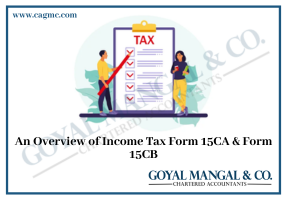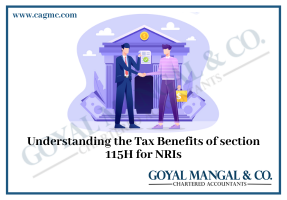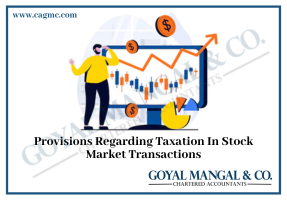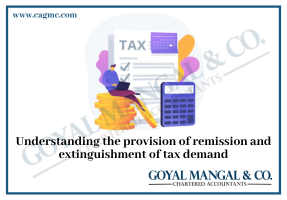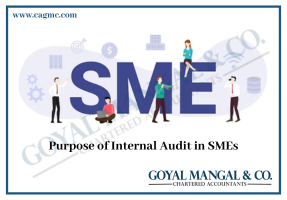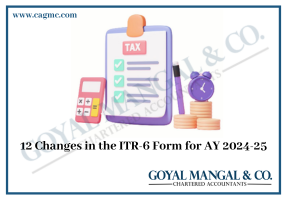 This blog is for you if you are new to freelancing and want to know what your tax obligations are as a freelancer. Consider it your go-to resource for freelance taxation. This article outlines the procedures you should take to avoid fines and taxes levied on freelancers in India. In accordance with the income tax regulations, independent contractors must pay the taxes on their earnings just like salaried individuals or entrepreneurs.
This blog is for you if you are new to freelancing and want to know what your tax obligations are as a freelancer. Consider it your go-to resource for freelance taxation. This article outlines the procedures you should take to avoid fines and taxes levied on freelancers in India. In accordance with the income tax regulations, independent contractors must pay the taxes on their earnings just like salaried individuals or entrepreneurs.
Let us first understand what is freelancing before we shall move on to discuss their tax obligations.
Meaning of Freelancing
Working for oneself instead of another person is what freelancing means. Freelancers are independent contractors who take on jobs as they come along. The answer to the question “what roles do freelancers perform?” is that they play practically all of them. As a freelancer, you can select from various fields, including writing, editing, consulting, marketing, designing, ICT, virtual administration, social media management, etc. Freelancers frequently have advanced degrees in their fields and operate on their own. They can, however, also collaborate in person.
Meaning of Freelancer Income
Whenever you are hired to work on certain projects for a definite period and then are compensated for the project after submission and completion, this is the moment when a freelancer’s revenue enters the equation. You won’t receive a paycheck from the business otherwise it will be added to their payroll. However, you won’t receive a single of the benefits such as Provident funds, gratuity, etc. required by the Companies Act, 2013. You do not need to be present at the office; rather, you may work from any location that is suitable for you and finish the task at your own pace (by its established deadline).
India’s income tax regulations define “profession” as any income you receive for using your skills or capabilities. These earnings will be subject to taxation as “Profits and Gains from Business or Profession.” Your total payments from practicing a career will make up your gross income. If the majority of your professional revenue has been transferred through banking channels, then account bank statements are indeed a record you may depend on to gather this data.
Criteria for taxation on Freelance Income
The following are the criteria for taxation on Freelancing Income:
- The cost must be offset by income from freelancing.
- It is earned throughout the specific fiscal year.
Accounting Methods for estimation of Freelancing Income
There are now two methods available for freelancers to track their revenue and outgoings and determine their taxable income. They comprise the cash basis of accounting as well as the accrual basis. If the accounting method is adopted once, it must be used consistently for years. You cannot regularly change the method, for instance, in an effort to avoid paying taxes or saving money.
Two types of accounting methods are:
- Mercantile basis
- Cash basis accounting
Computation of Taxable Income and Taxes Due
Utilizing all of the deductions allowed by Section 80, one can lower their tax obligation. In this way, Section 80C of the Income Tax Act, 1961 encourages taxpayers to save for the future by providing tax relief on a number of expenses.
Net Taxable Income = Gross Taxable Income – Deductions
By seeking a deduction for the sum that was really invested or spent in accordance with this section, you can lower your taxable income by a maximum of Rs. 1.5 lakh. You must pay the tax on your earnings when you are 60 years old and have a net taxable income that exceeds Rs. 2.5 lakh.
Taxes that a Freelancer must Pay
If the taxpayer owes more than Rs. 10,000 in taxes for the entire fiscal year, they must pay taxes on a quarterly basis. The term for this is Advance Tax.
Applicability of Advance Tax: The freelancer must pay every three months in cases when the total amount of tax due is Rs 10,000 or higher. This tax is an Advance Tax and is paid each quarter.
First, all the revenues are pooled, the costs and TDS are subtracted, and then additional income from sources like rental property income, interest income, capital gains, etc. The amount is then determined according to the tax bracket to which they belong. If the tax liability is greater,
How is Advance Tax Calculated?: One can follow the following procedure for the calculation of Advance Tax:
- Calculate your overall income by adding up all of your receipts.
- Subtract work-related expenses from the total.
- Add earnings from additional sources, such as a house or a savings account.
- Calculate your tax liability by learning which tax bracket you fall under.
- Recall subtracting TDS.
How one can pay Advance Tax?: There are two approaches for paying Advance Tax which are as follows:
- The website of the IT Department accepts online payments. Click here to view a screenshot tutorial for submitting tax obligations on the official website.
- You can also physically go to your bank to complete a physical challan and deposit tax.
Penalties for failing to pay Advance Tax: When you don’t pay your Advance Tax, interest under Sections 234B and 234C may be owed. In order to avoid Section 234B and 234C Interest Penalties,
When your annual tax burden is Rs. 10,000 or above, you must pay advance tax.
Up until the end of March each year, advance tax payments should equal 100% of the entire tax due. Since Advance Tax must be paid by the dates specific to the IT Department, Section 234C is applicable when interest is not paid by the due dates. Section 234B applies when Advance Tax is not paid.
Allowable Deductions for Expenses: The advantage of deducting work-related expenditures from salary is available to freelancers as well. These costs should, however, be directly linked to the work you are undertaking.
Requirements for Deducting the Expenses from Freelance Income:
- The associated costs must directly correspond to the freelance work being performed.
- It is paid throughout the tax year and solely for the purpose of the work.
- However, it shouldn’t be a capital expense or a freelancer’s personal expense.
- It is not used for anything that is illegal or against the law
Expenditures that can be deducted from Income
Following are the Expenditures that can be deducted from Income:
- Rent premises: The rent that was paid is deductible if you rented property to conduct your business.
- Repairs that take place: These charges can indeed be written off if you’ve committed to cover the cost of fixing the rental unit. You may also deduct repairs you make to office space if you own it. However, your equipment is part of it.
- Depreciation: The advantage of a financial asset is typically anticipated to extend longer than a year when you buy one. When purchased, these assets are capitalized rather than allocated to expenses. A little percentage of its cost is deducted from your income each year as an expense. The term “depreciation” refers to this annual payment.
- Office costs: You can deduct costs related to your job, including those for buying a scanner, office supplies, monthly phone and internet fees, and travel expenses.
- Travel Charges: Travel costs to meet with customers either within or outside of India are deductible.
- Meal, entertainment, or lodging costs: It can be justified by showing that money was only spent on client meetings, client dinners, or other outings with the express purpose of acquiring new clients or keeping existing ones.
- Insurance: local levies and insurance for your personal property used for business
- Software: Apps acquired to test your product and domain registration are also eligible expenditures.
Overall Taxable Income and Tax Obligations
By fully utilizing the deduction permitted by Section 80, a freelancer can lower their tax outlay. To encourage taxpayers to increase their future savings, Section 80C of the Income Tax Act, 1961 offers tax relief on several expenses. Deductions from gross taxable income can be used to compute net taxable income.
What is the applicability of (the GST) Tax for Freelancers in India?
The following is the applicability of (the GST) Tax for Freelancers in India:
- The rate of GST will differ considerably on the kind of goods you are offering if you do so.
- The majority of services are subject to GST at the rate of 18% if you are delivering them. You must charge consumers 18% GST because you are offering freelance services.
- The receipts must all adhere to GST regulations.
- GST is not imposed if the overall income from freelance employment is less than 20 lakhs.
- If a freelancer sells items or provides services with a turnover below the announced maximum, they are also eligible to get benefits under the composition program.
- GST is not applied to zero-rated supplies, including exports, which are exempt from it.
- You must file the return as soon as you have a GST Identification Number.
What kind of Expenses cannot be Deducted?
According to the Income Tax Act, of 1961 the following expenses cannot be deducted from one’s income:
- Any kind of tax paid by you on income.
- Any interest, fee, or penalty for failing to pay taxes on time or paying them late.
- Payments provided to relatives may not withhold in the following circumstances:
- You have obtained products, resources, or equipment.
- A relative or someone with a significant stake (20% or more in equity or profits) in your company has received payment.
- The payment is either:
- Insufficient to cover the fair market worth of the provided goods, facility, or service is not legitimate as per your profession when you genuinely obtain a benefit as a result of incurring that expense.
- Cash payments for expenditures costing something beyond Rs. 10,000 are not eligible for tax deductions.
Takeaway
Since Freelancers work on various projects and assignments and their income depends on both national and international services. Therefore, tax estimates of their income can be brainstormed. So, to curb penalties and gain a maximum of its exemption one is advised to seek experts’ advice.


